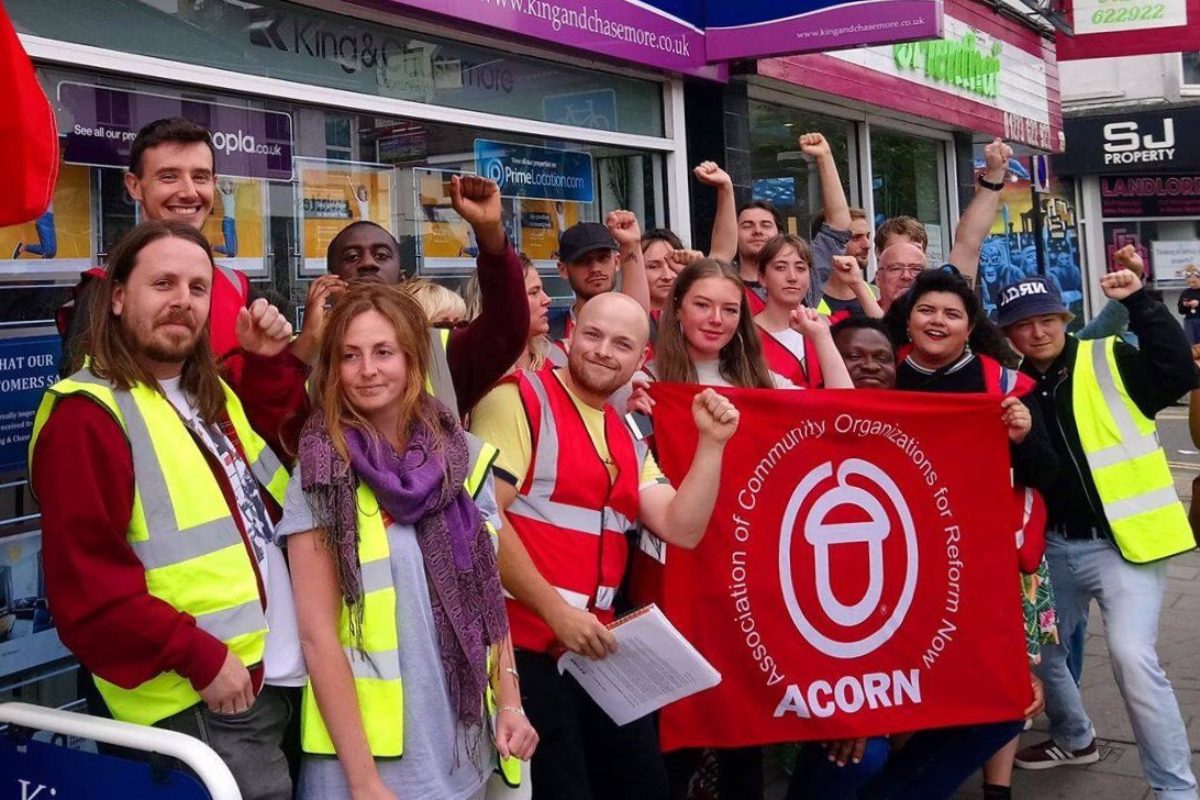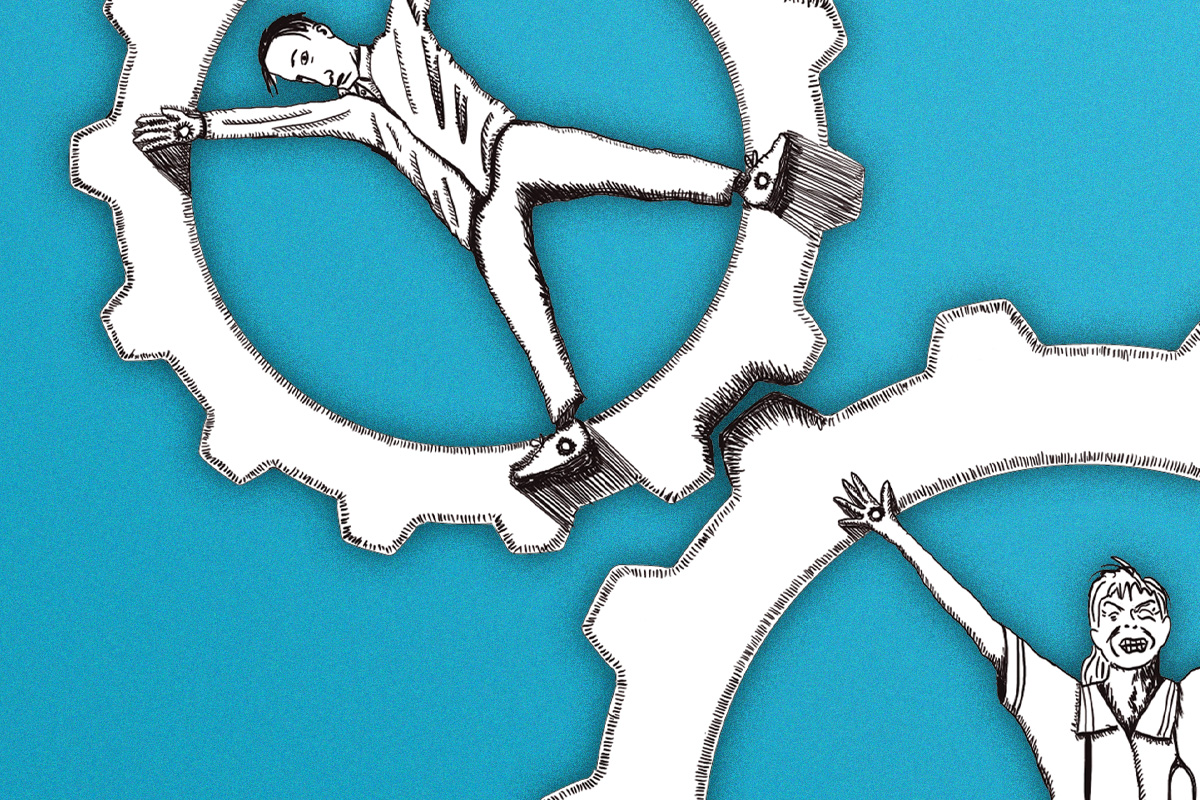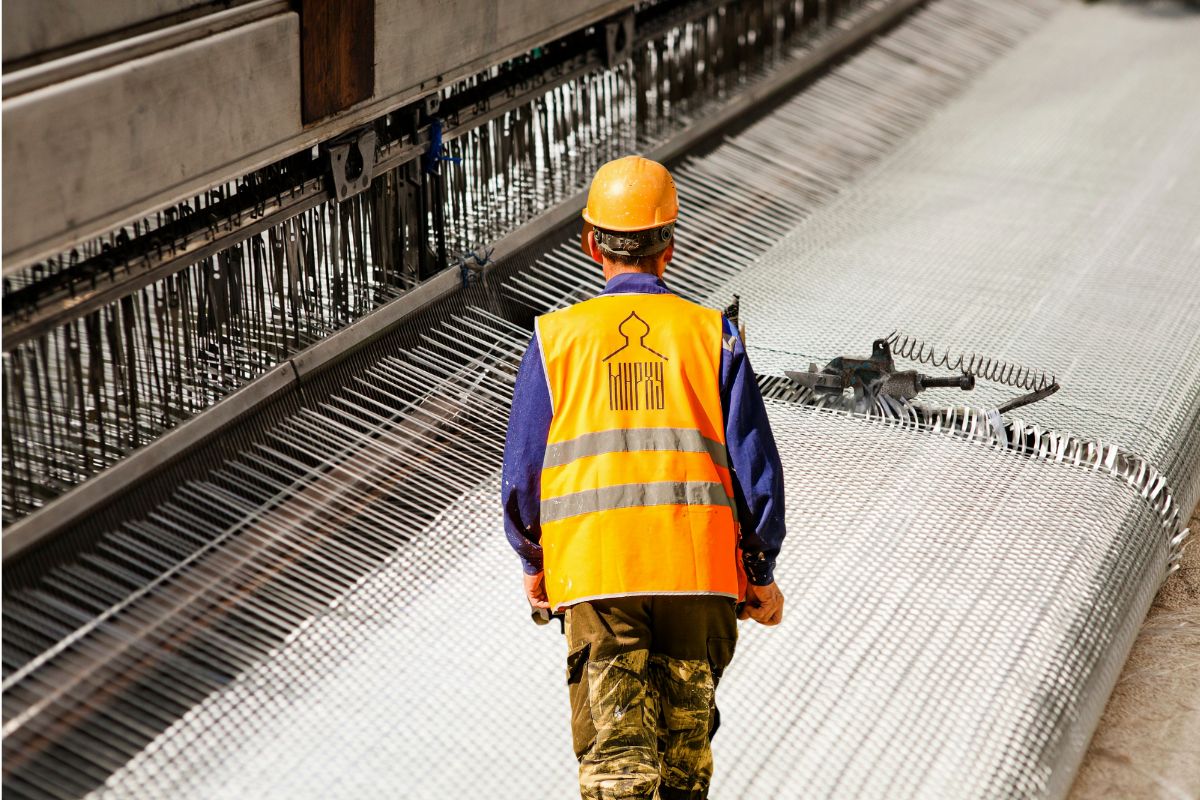With the Tories going on the offensive against workers and migrants, many activists are turning to community organising to rebuild the movement from the ‘bottom up’. But this must not be a substitute for radical political struggle.
Since Labour’s general election defeat in December, thousands of newly-mobilised activists are looking for new avenues to channel their energy. As a result, local charities, food banks, and community unions are seeing a boost in membership and volunteer numbers. Acorn, one such community activist group, has claimed hundreds of new members within weeks of the election results.
Many new Labour activists went into the general election period hopeful and on the attack. But now they are on the defensive, wanting to protect working-class communities that have been neglected and attacked through years of austerity policies. This is compounded by a pessimism that Johnson and the Tories are unmovable for the next five years.
But the best defence is a strong offence. It is certainly important that the Labour movement grounds itself in local communities and becomes part of the fabric of working-class life once again. However, this must not be at the expense of the struggles within the workplace, the trade unions, and the Labour Party.
Ultimately, it is only by tackling the bosses, the Tories, and the capitalist system head on that we can defeat society’s ills – from homelessness to food poverty – once and for all. We must tackle the disease, and not just the symptoms.
Utopian socialism
 Labour left journals such as Tribune have also attempted to provide a more theoretical basis for this concentration on community building initiatives. These commentators believe that the only path to a Labour victory is by building the Party up to become a mini-welfare state. The German Socialist Party (SPD) in the early 20th century is cited as a precedent for this.
Labour left journals such as Tribune have also attempted to provide a more theoretical basis for this concentration on community building initiatives. These commentators believe that the only path to a Labour victory is by building the Party up to become a mini-welfare state. The German Socialist Party (SPD) in the early 20th century is cited as a precedent for this.
The SPD had a huge party apparatus, including beer halls, sports clubs and theatre groups. But socialism cannot be slowly built from within capitalism. Indeed, this attempt to gradually move to socialism was a reflection of the growth of a large party bureaucracy inside the SPD – an ‘aristocracy of labour’ who had abandoned Marxism as a result of a temporary economic upswing.
This trend of attempting to create socialist experiments and utopias within capitalism, from the ‘bottom up’, goes back even further. Most famously was Robert Owen, a utopian socialist who attempted to create a socialist society in New Lanark, where he owned a great cotton mill.
Owen cut the working hours for the workers in his factory, increased their pay, improved their working conditions, and created schools for their children. But he learnt first hand that capitalism cannot just be ‘fixed’ or reformed by such measures. In the later years of his life, therefore, he actively involved himself in the struggles of the working class.
As Frederick Engels writes of Owen in his pamphlet Socialism: Utopian and Scientific: he “turned directly to the working-class and continued working in their midst for 30 years”. A socialist society cannot be built single-handedly for the working class by a cotton mill owning philanthropist. Nor can it be created from within capitalism. The capitalist system must be actively overthrown by the working masses.
Charity, cuts, concessions
 Charities and community endeavours can only ever be a palliative treatment for the symptoms of capitalism. But they cannot bring us any closer to achieving socialism.
Charities and community endeavours can only ever be a palliative treatment for the symptoms of capitalism. But they cannot bring us any closer to achieving socialism.
History shows that if the ruling class do make concessions, it is only on the basis of mass working class struggle. And even then, without continued struggle and fundamental change, these reforms are always temporary, and can be taken away as quickly as they are given.
This can be seen clearly with the NHS. This has been rolled back since its conception, and elements such as pharmacies, opticians, and dentistry – along with many other vital services – have already been privatised and outsourced.
Community organising can help to lessen the impacts of austerity on a local level. But it does not eradicate them. The cuts are the result of the capitalist crisis. We therefore need to organise to challenge the system, not build a substitute for the ailing welfare state.
This community activism also relies on the kindness and charity of the working class – people who are already struggling. The billionaires, landlords, bankers and bosses, meanwhile, are all let off the hook!
This instinct of solidarity and cooperation amongst the working class should not be discouraged. But it must also not be a substitute for the direct political and economic struggle through the Labour movement and in the workplace.
Fight for socialism

No matter how much one tries to reform it, capitalism is a broken system that will always leave workers, the poor, and the vulnerable behind. The admirable work done by activists and community organisers can only ever be a sticking-plaster over capitalism’s hemorrhaging open wound.
Instead of trying to patch up this rotten system, we need to fight for a fundamental transformation of society. This means investing our energies in arming the Labour movement with bold socialist policies.
To stop the cuts and end austerity, homelessness, poverty, and hunger once and for all, capitalism must be overthrown. We need to struggle for a socialist society based on common ownership and democratic workers’ control – one that works for working-class communities and where no one is left behind.






